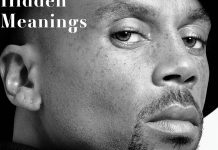
Photograph by Claudio Marinesco
Local author Karen White has published 23 books since her first novel in 2000. She calls her Southern women’s fiction “grit lit” and sets many stories in South Carolina’s Lowcountry, but her latest novel, The Night the Lights Went Out, is her first in the metro Atlanta area. Recently divorced mother of two Merilee Talbot moves to Sweet Apple, Georgia, a fictionalized Milton, where she befriends old Southern matriarch Sugar Prescott and wealthy school mom Heather Blackford. Alternating between 1930s Depression-era Georgia and a modern-day murder, the book comes out April 11, and White will read from it that night at FoxTale Book Shoppe in Woodstock. She spoke to us about the familiar setting, her inspiration, and her writing process.
This is your first novel set in the metro area. Why did you finally decide to write about Atlanta?
Over the years, I’ve been asked so many times why I write about South Carolina. People asked: “Did you live there?” or “Did you grow up visiting?” I hadn’t; South Carolina was just something I had an affinity for. I never thought that just because I didn’t choose this place [to live in] I didn’t have a story. Atlanta was just a place I lived. But my daughter was working pro bono for the historical society, and she found all this history with the Civil War, the Cherokee Indians, farmers during depression. There was this wealth of history that made me realize Atlanta really does have a past, and so many of my books have that historical component. I had a lot of fun with it, and being right here helps with research.
What influenced the suburban satire in the book?
I was on one of our new roundabouts in Milton, and this ginormous white SUV, with every sticker in the world of where kids went to school or church, was stuck at yield sign in a roundabout. They didn’t know how to use the roundabout! The license was YURSERV, referring to her next tennis match. I thought: I have lived in this suburb for 25 years. I have been the soccer mom. Why can’t I do a little gentle ribbing of this world I know so well? There are a couple of real people I sort of dig at in the area, but they’re so mixed with fiction. I’m not mean, and everyone knows it’s meant to be funny.
Why add the voice of the anonymous blogger between chapters?
I didn’t realize why I was writing it until someone said, “The blogger is you.” It’s all of my opinions and an opportunity to sort of voice myself in the book. Someone told me it was like Gossip Girl, and I asked, “Does Gossip Girl have an anonymous blogger? Well crap, I thought it was an original storyline!”
Sugar is such a strong character. Was she inspired by anyone?
I am in a book club, and there was an older woman named Dusty. She was 90-something at the time. Her brother died in WWII. She was a born and raised Southerner. She was a widow. She was still driving. I stole a line right from Dusty to give to Sugar. The rest of the book club was all different ages with children, and we had a discussion about an ideal marriage, and she said, “I want a man who could drive at night.” That was the birth of the character of Sugar. But also my good friend’s mother was this feisty thing who was so involved in her community. Sugar gives a voice to the Southern matriarch figure. There are just as many Sugars as there are weird grandmas.
What are you working on next?
I’m writing another South Carolina Lowcountry book. I got my start writing about the Lowcountry, and it’s what people all over follow me for. I have to give thanks to Pat Conroy because he was the one who introduced me to the area. Reading about it brings it to life, but nothing compares to actually going there. I find it helpful to have that [geographic] distance when writing because you don’t get numb to things; you see things afresh. That’s what makes us writers. Our brains are wired differently. If I see a garbage bag on the side of a highway, I think, “Oh my gosh, it’s a dead body!” I’ve always been the “what if” person, and when that stops, that’s when I need to stop writing.
You write at least two books a year. How do you keep up the pace?
I don’t know how I do it. I don’t recommend it. I am a true believer in striking while the iron is hot. My career is not a hobby. As long as I know I can keep up the quality, my goal with each book is to make it better than the last. I am always writing when I am not doing anything else, seven days a week. My best writing time is in the morning. I do write anywhere, but I have to write with my feet up; I can’t sit at a desk. I like to write up in my sitting room in my bedroom with my older dog next to me.













